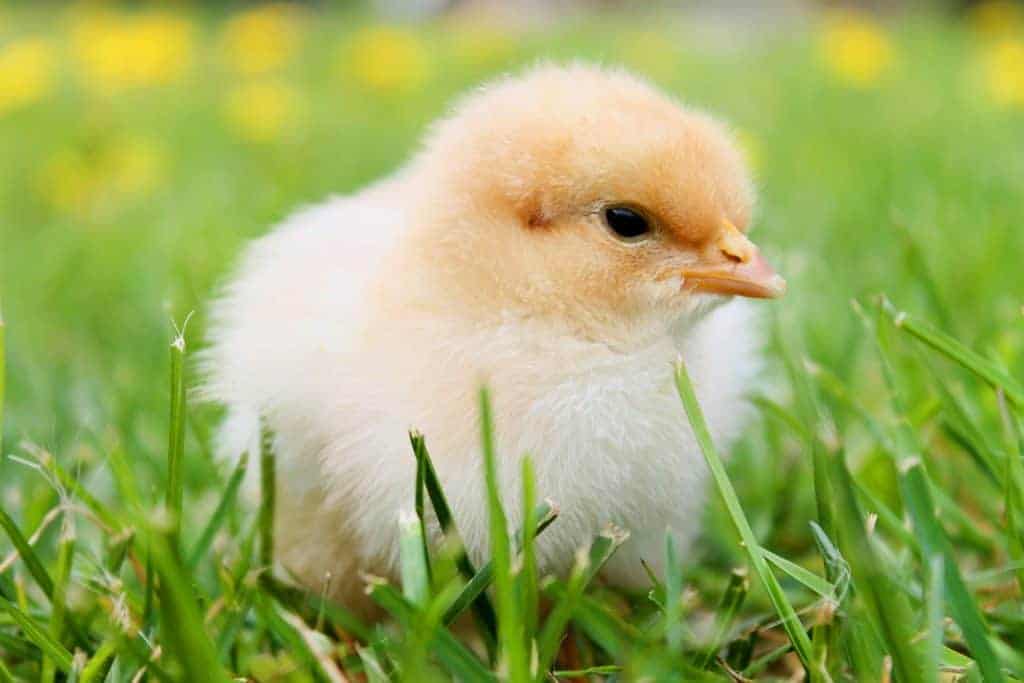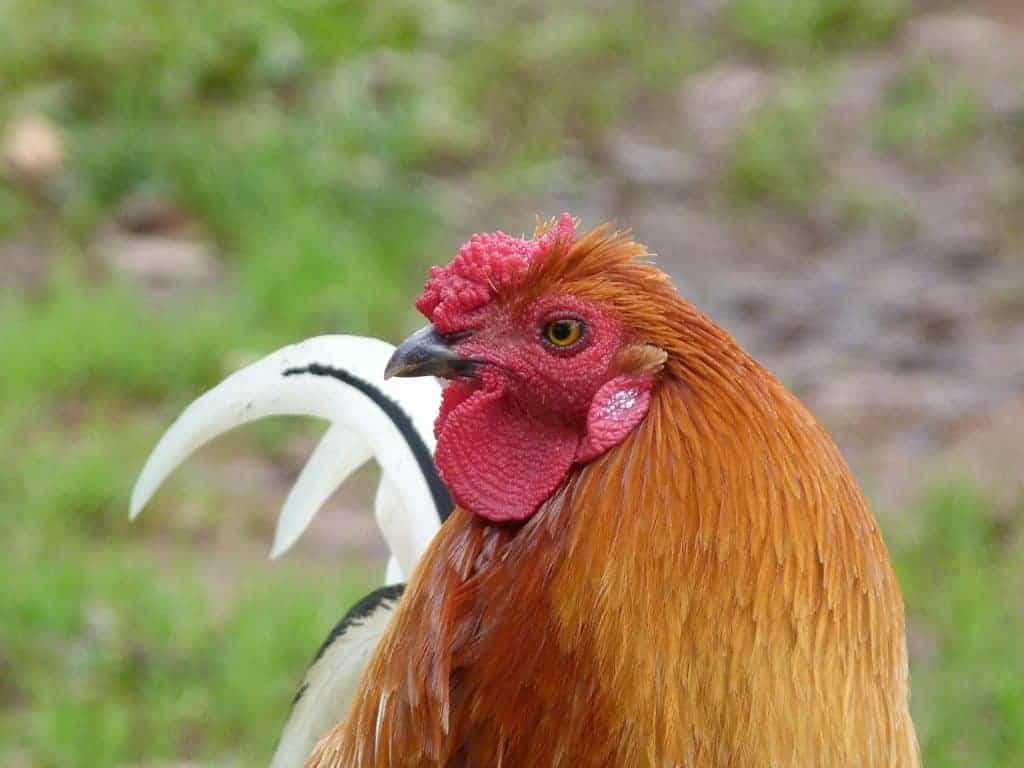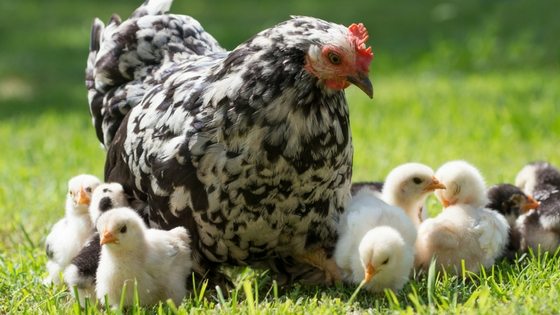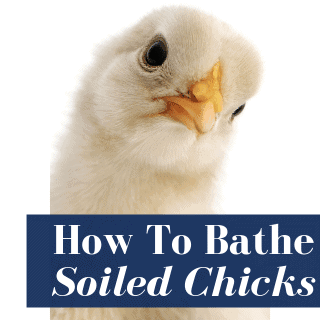Quite frequently, I get messages from readers asking “What vaccines do my chickens need?”
In this article, we’re going to cover what vaccines are available for your flock. (This article was reviewed for veterinary accuracy by a licensed veterinarian on June 3, 2017.)
Before we get started, let’s get one thing out of the way: I’m not telling you IF you should get your chickens vaccinated – that’s a personal decision only you can decide.
I recommend you talk to your local qualified poultry vet and ask them what vaccines your chickens need. This article is meant only as a reference for what’s available (and remember that I’m not a vet – which is why I had this article reviewed by one!).
You should also know that I don’t personally vaccinate my chickens. That’s a decision I made based on the overall potential benefits compared to the overall potential negatives and costs (risk assessment, y’all).
For the most part, vaccines for chickens have been developed to improve the death rates, create herd immunity, and to reduce the potential transmission of diseases among chickens crammed together in a small space in the commercial sector, and not necessarily for the common backyard flock you and I have.

My flock doesn’t leave my property very often, and we practice common sense hygienic measures (cleaning and disinfecting coops, feeding only fresh food without mold, segregating new flock members for 30 days to check for disease, limited exposure to wild birds, etc).
These practices have been sufficient, and according to some vets I’ve consulted, quarantine and proper hygiene practices are MORE effective than vaccines.
Particularly if you’re raising Cornish Crosses for meat, remember you’ll likely be harvesting them between 6 and 10 weeks of age. You won’t want to do anything to harm or taint the meat, which might happen with injectable vaccines.
Remember also, that most vaccines come with warning labels advising to not butcher poultry that have just received shots (they tell you to wait anywhere from 15 to 60 days) – not ideal for meat birds.
If you DO want to vaccinate your chickens (for example, you attend poultry shows or are constantly bringing new chickens home from swap meets) – more power to you. I hope this article gives you a good overview of the options you can discuss with your vet.
Bottom line: It’s a personal decision only you can make after educating yourself and consulting with a qualified vet.
If you want to read about common chicken illnesses, you can do that in this article. If you want to learn how to care for a sick chicken, here’s a great reference.
What vaccines for chickens are available?
This list isn’t comprehensive, and the veterinary world comes out with new medications and vaccines all the time. These are common ones I get asked about. The information referenced is from the Merck Veterinary Manual. (If you’re committed, you can find it online, or buy your own copy on Amazon here.)
Some of the most common vaccines for chickens are for:
- Marek’s Disease
- Mycoplasma gallisepticum infections
- Infectious Bursal Disease
- Encephalomyelitis
- Fowlpox
- Laryngotracheitis
- Newcastle disease/Infectious Bronchitis
Marek’s Disease
When given, this vaccine is usually given to day old chicks, both broilers (usually Cornish Crosses) and layers. If you want your chickens vaccinated against Marek’s, most hatcheries will do it for you for a small fee (don’t bet on those chicks you buy at the local feed store having it – your best bet is to order from a hatchery and pay for the vaccine).
It’s given subcutaneously, which means below the skin. In most cases it’s given in the breast of your day old chick. An expert handler will do it likely without complication, but since chicks are very fragile, it’s also possible they will be injured by a less-than-adept technician.
You can buy a Marek’s Disease vaccine here on Valley Vet. (I don’t make any commission from this company. I personally buy equine vaccines from them, so I trust this source enough to recommend them).
Newcastle/Infectious Bronchitis
You can read more about Newcastle/infectious bronchitis here.
The vaccine is usually given between 14-21 days of age, via water, and at commercial poultry farms, is given consistently (every 2 weeks to 90 days, depending on age, location, managerial decisions, etc) thereafter. (See this chart about what vaccines chickens can get from the Merck Veterinary Manual).
You can buy this vaccine on Valley Vet here. You might need a prescription, so talk to a knowledgeable vet. They can also advise you on dosage strength and where (and how) to administer it.

Infectious Bursal Disease
This is a viral disease of the bursa, and it can interfere with immune system development as chicks age. You can read more about infectious bursal disease here. The vaccine is usually given 14-21 days old via water.
Encephalomyelitis
You can read more about Encephalomyelitis here. Given in the wing web at 10-12 weeks old
Fowlpox
Read more about Fowlpox here. The vaccine is usually given in the wing web at 10-12 weeks old. We’ve had fowlpox in our flock, and successfully treated it.
You can buy this vaccine on Valley Vet along with the vaccine for Encephalomyelitis. You might need a prescription for it, so speak to your vet first. Your vet can also advise on the dosage and where to administer it.
Laryngotracheitis
This is a viral infection. You can read more about it here. The vaccine is usually given at 10-12 weeks, intraocularly (in the eyeball) with eye drops, according to veterinarians I consulted.
Mycoplasma gallisepticum
This is a bacterial infection that can cause a chronic respiratory infection. You can read more about it here. The vaccine is usually given between 10-14 weeks of age, either intraocularly (in the eyeball with eye drops) or by a spray (according to The Merck Veterinary Manual), although I have seen injectible vaccines (see below).
You can find this vaccine on Valley Vet here. Their product looks like an injectable vaccine, so discuss with your vet before using it.
That’s the skinny on vaccines! It’s completely up to you if you want to vaccinate your backyard flock – just remember to consult a qualified poultry vet.
In all honesty, (based on my experience) if your local vet doesn’t have much experience with chickens, they probably won’t have these vaccines on hand, and they might not be comfortable administering or prescribing them.
I’d like to hear from you!
Have you vaccinated your chickens? What was your experience? Leave a comment below!
Maat van Uitert is a backyard chicken and sustainable living expert. She is also the author of Chickens: Naturally Raising A Sustainable Flock, which was a best seller in it’s Amazon category. Maat has been featured on NBC, CBS, AOL Finance, Community Chickens, the Huffington Post, Chickens magazine, Backyard Poultry, and Countryside Magazine. She lives on her farm in Southeast Missouri with her husband, two children, and about a million chickens and ducks. You can follow Maat on Facebook here and Instagram here.





![How To Clean Your Chicken Coop [Podcast]](https://thefrugalchicken.com/wp-content/uploads/2016/05/How-To-Clean-Your-Chicken-Coop-feature-min.jpg)
